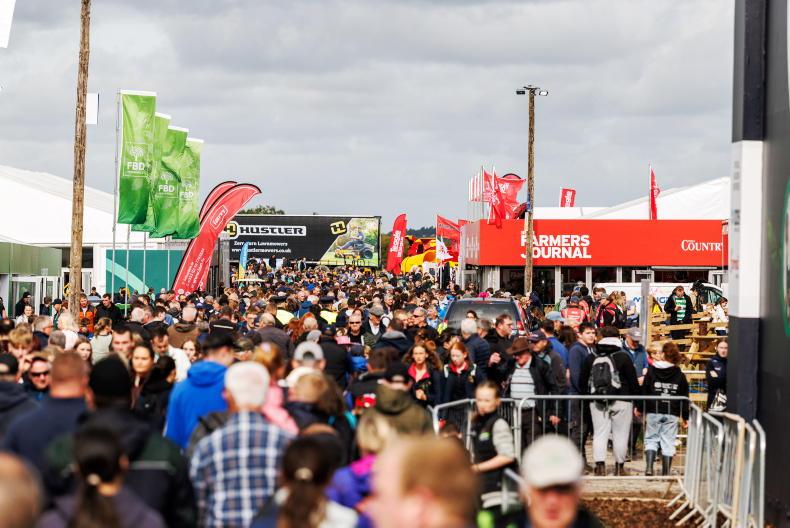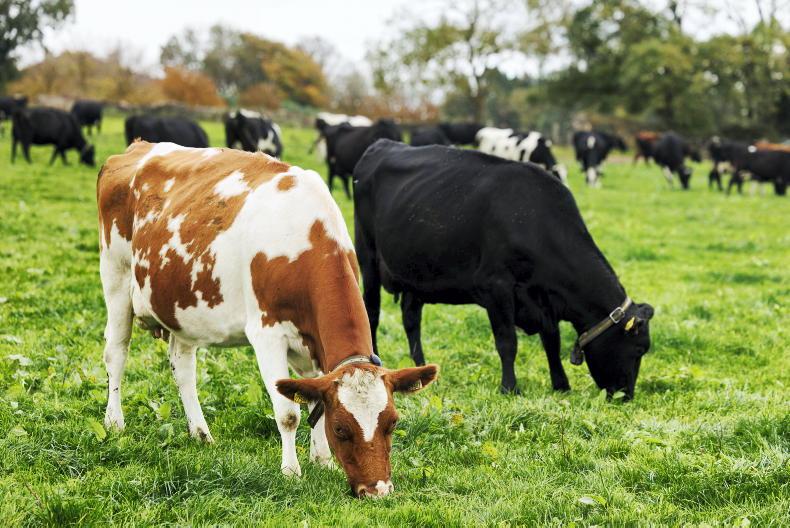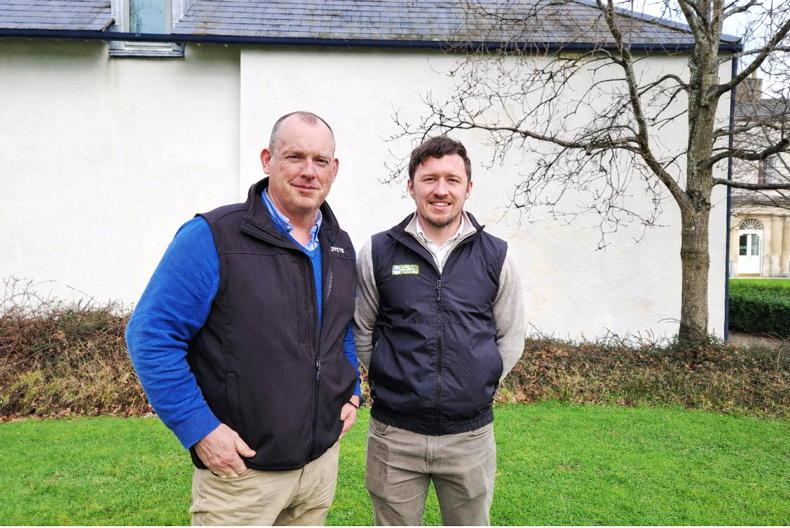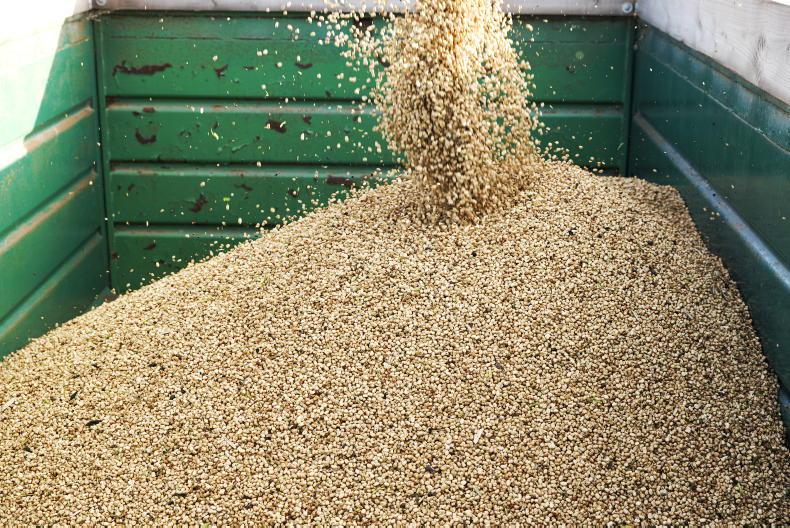The announcement by Dawn that it has closed its factory in Kilbeggan suggests that the impact of COVID-19 is really starting to be felt.
It has been a major concern in the dairy sector as it enters peak production season and most dramatically in the USA, where Tyson, one of the largest meat processors, took an advert in the New York Times warning of a meat shortage because of COVID-19-caused disruption to processing.
SIPTU
Here, SIPTU representatives have called for the mandatory temperature testing and the provision of personal protective equipment (PPE) for workers in meat and dairy processing plants following the confirmation of clusters of COVID-19 infections in a number of facilities.
Despite the announcements on Friday from Kilbeggan and Roscrea, we are a long way from the scale of the problem in the USA, although there is no room for complacency.
COVID-19 is an issue across the country and, as the national statistics show, some areas are more affected than others.
Huge efforts have been made in factories to minimise risk, but there is no escaping that it is an environment where staff work in close proximity to each other.
Kilbeggan is a cutting plant without an attached abattoir and the packing area in cutting plants is particularly congested.
Slow season in beef processing
One of the reasons why it is easier to absorb the loss of a beef factory is that we are at the quietest time of the year for cattle going into factories.
Last week, we had a 25,000 kill, down 5,000 on the same time last year. Peak slaughter season is in the late autumn, when weekly kills are regularly over 40,000 head.
Many factories at this time of year operate a short working week and a decision by a group that has multiple locations to take one of their cutting plants out of production could make economic sense, as well as address problems with COVID-19 among the staff.
There is no doubt at this time of year and with many farmers choosing to put cattle out to grass that there will be capacity elsewhere in the group to debone the carcases that would have went to Kilbeggan.
Lamb kills increasing
While the beef industry is in an ideal position to absorb loss of production capacity at this time of year, it is different for sheep, as in a few weeks time lamb lines will be operating close to capacity and will continue to do so over the rest of the summer.
There is also a relatively small number of high-throughput sheep factories – Kepak Athleague, Kildare Chilling, ICM Navan and Camolin, Dawn Ballyhaunis, with smaller numbers at Jennings, Ballon and Moyvalley.
Losing one of the big five export-orientated plants in particular during peak season would present a real problem, especially as almost half of Northern Irish lambs are processed in these as well.
Similarly, in pig processing factories, there are a small number of high-volume processors and the shorter growth time for pigs means there isn’t an option to delay processing in the way that there is with beef cattle.
Already with Rosderra Meats operating on what they describe as a “scaled-down process" in the short-term until staff return, there is a delay in getting pigs slaughtered. The nature of a steady flow of pigs into factories means that it will take a considerable time to clear any backlog.
Pigs
So if a processing factory had to be lost in Irish agriculture, it is best that it is a cutting plant at this time of year, when they are working well below capacity anyway and with most markets closed outside of retail.
Their throughput will be absorbed elsewhere in the Dawn group, who themselves are less involved in retail than many other Irish factories.
It is also likely that as well as cattle numbers being down, their need for beef is also likely to be reduced, although that will change as burger chains get going again.
Read more
COVID-19 cases close Dawn Kilbeggan
COVID-19: SIPTU calls for action to avert closure of factories
The announcement by Dawn that it has closed its factory in Kilbeggan suggests that the impact of COVID-19 is really starting to be felt.
It has been a major concern in the dairy sector as it enters peak production season and most dramatically in the USA, where Tyson, one of the largest meat processors, took an advert in the New York Times warning of a meat shortage because of COVID-19-caused disruption to processing.
SIPTU
Here, SIPTU representatives have called for the mandatory temperature testing and the provision of personal protective equipment (PPE) for workers in meat and dairy processing plants following the confirmation of clusters of COVID-19 infections in a number of facilities.
Despite the announcements on Friday from Kilbeggan and Roscrea, we are a long way from the scale of the problem in the USA, although there is no room for complacency.
COVID-19 is an issue across the country and, as the national statistics show, some areas are more affected than others.
Huge efforts have been made in factories to minimise risk, but there is no escaping that it is an environment where staff work in close proximity to each other.
Kilbeggan is a cutting plant without an attached abattoir and the packing area in cutting plants is particularly congested.
Slow season in beef processing
One of the reasons why it is easier to absorb the loss of a beef factory is that we are at the quietest time of the year for cattle going into factories.
Last week, we had a 25,000 kill, down 5,000 on the same time last year. Peak slaughter season is in the late autumn, when weekly kills are regularly over 40,000 head.
Many factories at this time of year operate a short working week and a decision by a group that has multiple locations to take one of their cutting plants out of production could make economic sense, as well as address problems with COVID-19 among the staff.
There is no doubt at this time of year and with many farmers choosing to put cattle out to grass that there will be capacity elsewhere in the group to debone the carcases that would have went to Kilbeggan.
Lamb kills increasing
While the beef industry is in an ideal position to absorb loss of production capacity at this time of year, it is different for sheep, as in a few weeks time lamb lines will be operating close to capacity and will continue to do so over the rest of the summer.
There is also a relatively small number of high-throughput sheep factories – Kepak Athleague, Kildare Chilling, ICM Navan and Camolin, Dawn Ballyhaunis, with smaller numbers at Jennings, Ballon and Moyvalley.
Losing one of the big five export-orientated plants in particular during peak season would present a real problem, especially as almost half of Northern Irish lambs are processed in these as well.
Similarly, in pig processing factories, there are a small number of high-volume processors and the shorter growth time for pigs means there isn’t an option to delay processing in the way that there is with beef cattle.
Already with Rosderra Meats operating on what they describe as a “scaled-down process" in the short-term until staff return, there is a delay in getting pigs slaughtered. The nature of a steady flow of pigs into factories means that it will take a considerable time to clear any backlog.
Pigs
So if a processing factory had to be lost in Irish agriculture, it is best that it is a cutting plant at this time of year, when they are working well below capacity anyway and with most markets closed outside of retail.
Their throughput will be absorbed elsewhere in the Dawn group, who themselves are less involved in retail than many other Irish factories.
It is also likely that as well as cattle numbers being down, their need for beef is also likely to be reduced, although that will change as burger chains get going again.
Read more
COVID-19 cases close Dawn Kilbeggan
COVID-19: SIPTU calls for action to avert closure of factories









SHARING OPTIONS